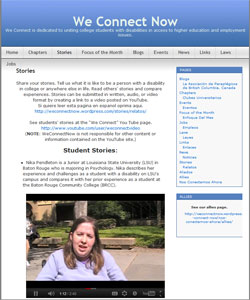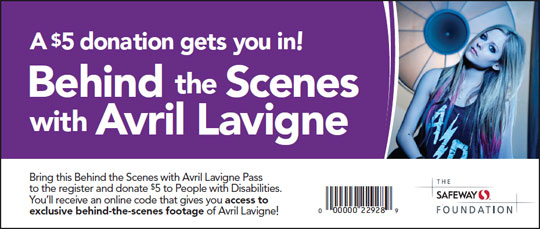Hardly working
by Beth Finke
Two grad students from IIT’s Institute of Design contacted me about a class project they were working on … they had to come up with a product that helps people who are blind, and they wanted me to help with their research. One of the many, many, many questions they asked during an interview was whether there is one career that is common for people who are blind. Truth is, very few people who are blind have jobs at all. From a story in Forbes:
“Despite the technical advances made to help blind employees, there is still a staggering unemployment rate among that population. Several organizations, including the American Foundation for the Blind, put it at 70% among people of employment age, a number that has stayed constant for many years.”
Pretty grim. This week, however, I read about a poll taken by the Society for Human Resource Management and the Cornell University ILR School Employment and Disability Institute that brings a glimmer of hope. Nearly two-thirds of the 662 human resources staff who answered the poll said that their companies include people with disabilities in their diversity plans and train staff on how to interview people with various needs., in 57 percent of the cases, hiring managers said their companies have relationships with local groups that promote employment of people with disabilities.
So hey, maybe things will start moving in the right direction. We still have a long way to go, though — I also read an article in Disability Scoop this week that says that the U.S. Department of Labor reported that as of March 2012, 15.2 percent of people with disabilities were unemployed, compared to 8.2 percent of the general population.







 One of the many things I love about working for Easter Seals is that we truly take an intergenerational approach to our advocacy and services. I have taken many legislators and their staffs to our
One of the many things I love about working for Easter Seals is that we truly take an intergenerational approach to our advocacy and services. I have taken many legislators and their staffs to our 

